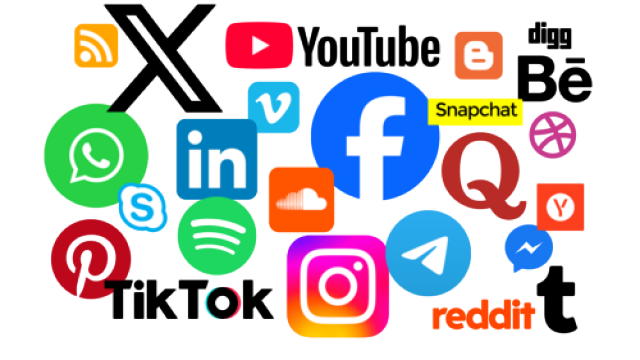Some educators argue that, despite the internet and social media having positive effects, their misuse adversely affects students' academic performance and diminishes the quality of education in the country.
In separate interviews in Abuja, they expressed that the prevalent use and misapplication of social media have caused students to become complacent and less focused on their studies.
An Associate Professor in the Department of Agricultural and Bio-resources Engineering at the Federal University of Technology, Minna, Sadiq Mohammed, stated that social media has facilitated exam malpractice among students.
He noted that social media, along with Artificial Intelligence and other emerging technologies, intended to assist developing societies, are often misappropriated, particularly in education.
“With the current trajectory of our education system, we seem doomed as many students travel to ‘magic centres’ to take their exams. “Many leave urban areas for rural locations where pre-solved answer sheets circulate during exams.
“They may gain university admission with impressive results but struggle to keep up later on. “With the advent of AI, a significant number of students are becoming complacent, spending more time on their phones using various apps to take exams,” he remarked.
He emphasized that the government must strengthen the education sector's ability to curb AI misuse by students.
Mohammed called for the implementation of measures to ensure the education system's integrity, including scrutinizing research papers and addressing the issue of plagiarism.
He advocated for an education system that fosters academic discipline among students.
Retired principal Judy Eke lamented that it's regrettable that many parents support their children in engaging in exam malpractice via social media.
She mentioned that some parents even finance such unethical behavior and provide data for their children's internet use to commit exam fraud.
“Parents contribute to this by giving their children money to register for exams in distant villages. “It’s alarming that even educated individuals hire proxies to take exams on behalf of their children.
“These actions hinder students' development; they no longer appreciate hard work. “Social media is generally contributing to a decline in effort. They assume that every answer found online is accurate,” Eke commented.
She further explained that placing more emphasis on academic qualifications and grades rather than actual skills encourages reliance on the internet for committing exam malpractices.
Eke insisted that it is time for the government to declare a state of emergency in the education sector.
A Teacher Adebayo Adewole stated that while social media provides access to information, learning opportunities, and global connectivity, it also distracts many students.
He noted that much of the information available on social media is misleading, particularly for students.
He stated that social media addiction negatively impacts students' performance in both internal and external exams. “Students often spend up to four hours online, yet struggle to dedicate just 30 minutes to studying.
“This contrasts with the past when students were more focused. Today's youth are more engaged with social media trends than their education,” he said.
Adewole further added that social media has promoted cybercrime and exposed young people to immoral behavior, urging the authorities to regulate the social media landscape.
“The educational system should also encourage students to study physical books instead of relying on digital content, as they tend to depend more on the internet.
“Teachers assign tasks meant to be completed with textbooks, yet students resort to the internet and AI to complete these assignments,” he remarked.




















